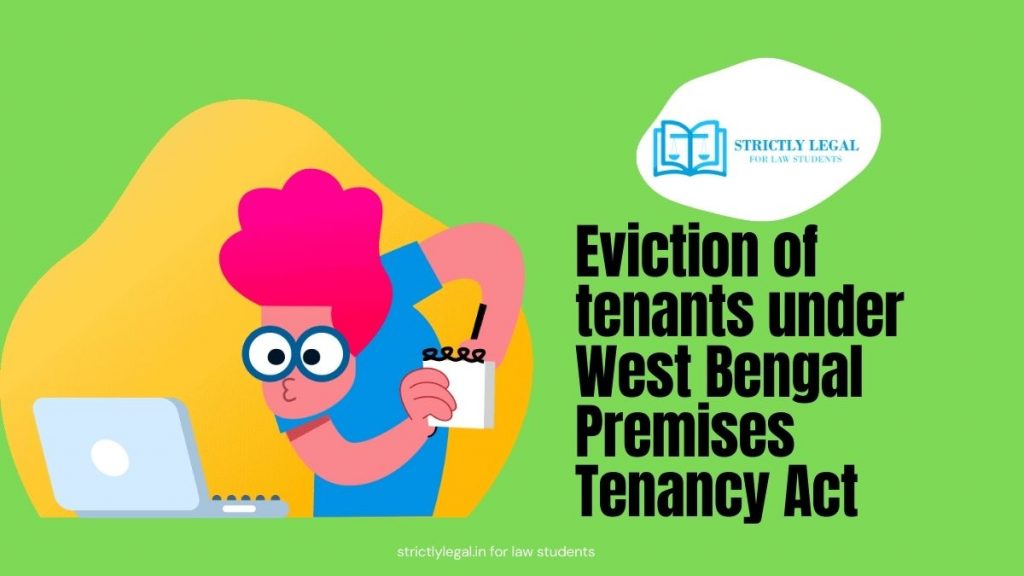The data that has been quoted at several instances indicate that more than 42% of the urban population of the world lives as a tenant and the same is true and indicative in India. Living as a tenant at a place and then suddenly receiving an eviction notice is something unwarranted. To safeguard the rights of tenants from illegal eviction, the West Bengal Premises Tenancy Act, 1997 prescribes certain guidelines only under which a tenant could be evicted.
Table of Contents
Meaning of Eviction
Eviction has not been defined under the Act but in ordinary parlance, it means to oust a tenant from the tenanted premises. In other words, the landlord makes the tenant vacate the premises.
Provisions for Eviction
Section 6 of the West Bengal Premises Tenancy Act, 1997 deals with the Protection of Tenants Against Eviction. At the same time, it empowers landlords to evict tenants if any of the grounds as has been laid down are in breach by the tenant.
Section 6(1) clearly states the point that an order of eviction by the rent controller shall not be made unless the landlord applies for eviction under one or more grounds stated in section 6 in the prescribed manner.
The grounds for eviction of a tenant may be summarized as follows:
- Where the tenant has sub-let or parted possession of the premise without written consent of the landlord or where the premise is being used for any purpose other than for what it was rented.
- Where the tenant has defaulted payment in rent for more than three months in a year.
- Where the premise is required for construction or rebuilding or making any alteration and the same cannot be carried out without eviction of the tenant.
- Where the premise is required by the tenant (or his family) for occupation and no premises is available within the same municipal corporation or within 10 kms of the tenanted premise.
- Where the tenant has himself given a notice to quit tenancy but failed thereafter.
- Where the tenant is in breach of section 108 of the Transfer of Property Act, 1882
- Where the tenant uses or used the premise for illegal or immoral purpose.
- Where the tenant is guilty of any material detoriation of the premise or an act of negligence relating to waste managment.
- Where the tenant is guilty of conduct, or a part of nuisance or disturbing the neighbours.
- Where the premise is being kept under lock and key for more than a year.
Procedure for Eviction
The landlord after serving a notice upon the tenant shall avail him a period within which the premises must be vacated. If even after the service of notice the tenant fails to vacate the premise, the landlord has every right to move a court of civil jurisdiction or to rent controller seeking an order of eviction. The rent controller or the court of civil jurisdiction after giving a fair opportunity to be heard will decide the case and pass necessary orders.
Can the landlord evict the legal heirs after the death of the tenant?
This question of law has been dealt with in section 2(g) of the West Bengal premises tenancy act in the definition of Who is a tenant?
Read more: Obligations/Rights and duties of the tenant and the landlord have been discussed in a separate post.

Passionate about using the law to make a difference in people’s lives. An Advocate by profession.




